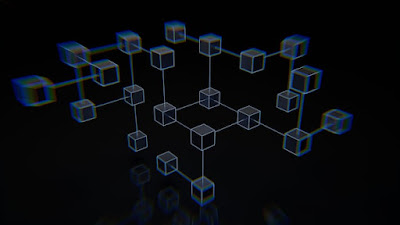what is.Blockchain
Blockchain is a decentralized and conveyed record innovation that arose as the hidden structure for digital currencies like Bitcoin. It capabilities as an alter safe, straightforward, and secure framework for recording exchanges across an organization of PCs. The center idea spins around making a chain of blocks, each containing a rundown of exchanges, connected together through cryptographic hashes.
At its pith, a blockchain is a ceaselessly developing rundown of records, or blocks, each containing a cryptographic hash of the past block, a timestamp, and exchange information. This construction guarantees the changelessness of the information inside the blocks, as modifying the data in a single block would require changing every ensuing block, an undertaking essentially unimaginable because of the cryptographic idea of the connections.
Decentralization is a vital trait of blockchain innovation. Dissimilar to conventional unified frameworks where a solitary power holds command over the whole organization, blockchain circulates the obligation among hubs (PCs) partaking in the organization. This decentralization improves security, lessens the gamble of a weak link, and advances straightforwardness.
The agreement component assumes an essential part in keeping up with the trustworthiness of the blockchain. It is the convention through which hubs settle on the legitimacy of exchanges and update the blockchain as needs be. Evidence of Work (PoW) and Verification of Stake (PoS) are two generally utilized agreement components. PoW requires members, known as excavators, to settle complex numerical riddles to approve exchanges and make new blocks. PoS, then again, chooses validators in view of how much digital currency they hold and will "stake" as guarantee.
Blockchain innovation stretches out past cryptographic forms of money and has tracked down applications in different enterprises. Shrewd agreements, self-executing contracts with the terms straightforwardly composed into code, mechanize and authorize arrangements without the requirement for middle people. This element is especially useful in enterprises like store network the board, where straightforwardness and effectiveness are pivotal.
While blockchain offers various benefits, it isn't without challenges. Adaptability, energy utilization (particularly in PoW-based frameworks), and administrative worries are regions that need proceeded with investigation and advancement. As the innovation develops, endeavors to resolve these issues are in progress to guarantee more extensive reception and joining into standard frameworks.
All in all, blockchain is a groundbreaking innovation with the possibility to reform how exchanges are led, information is gotten, and trust is laid out in different areas. Its decentralized and straightforward nature, combined with imaginative applications like shrewd agreements, positions blockchain as a promising power in reshaping the eventual fate of computerized cooperations.




Comments
Post a Comment